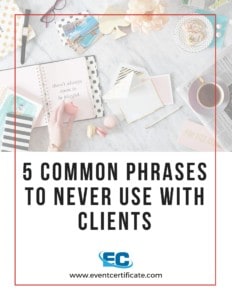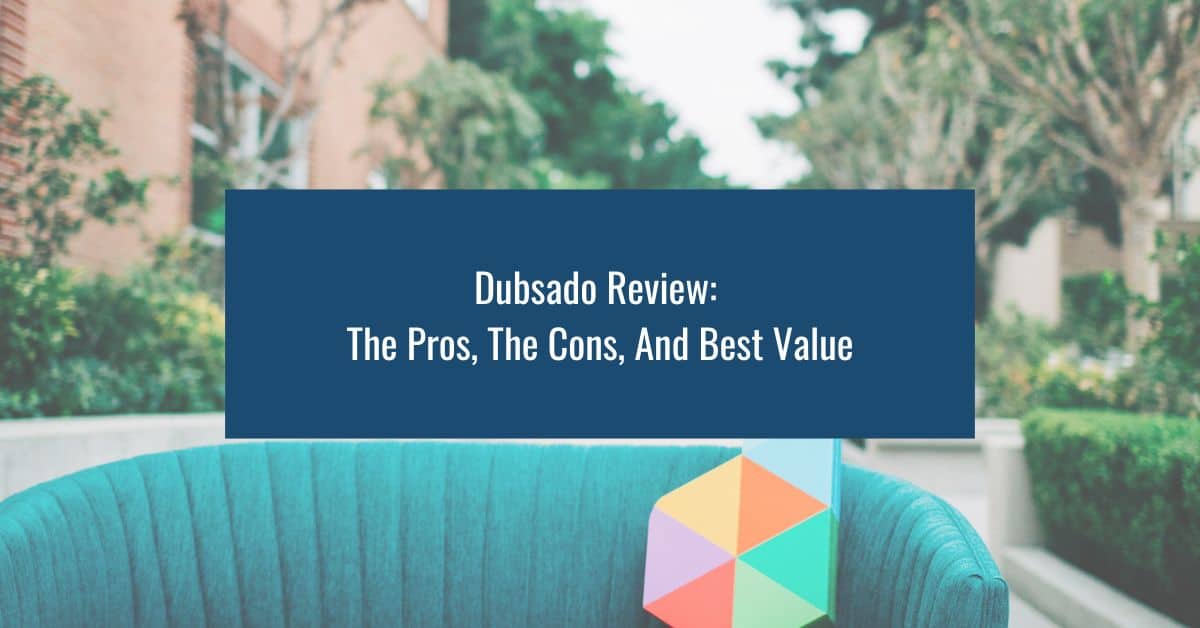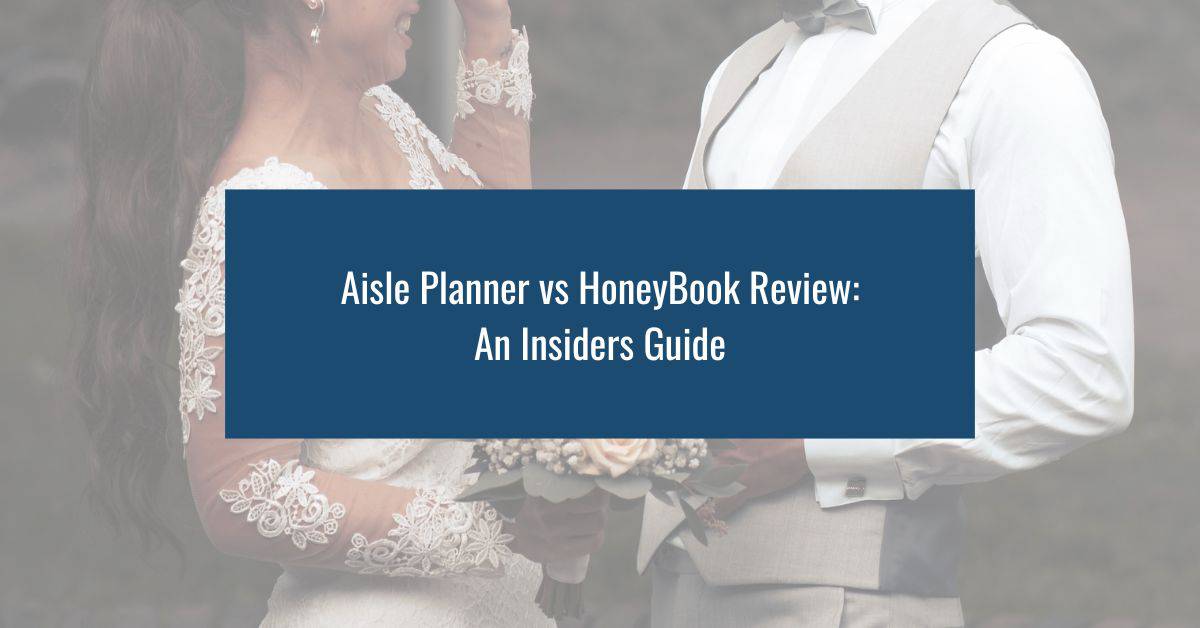
Communication is an often undervalued component of operating a business. The way you interact with and speak to your clients could mean the difference between them being a repeat customer or losing their business forever. In the event planning industry this is no different. I will share with you five phrases that will make you sound unprofessional.
Event planning is a service-based business. This means that a large part of your interactions will be with the clients who hired you, the attendees at an event or the suppliers from whom you will be purchasing goods/services (to name a few!). These individuals have a “stake” in the event you are planning and are often referred to as stakeholders. The most important stakeholder, in this case, is your client. How can you ensure that you are communicating with your clients in a way that guarantees repeat business, their satisfaction, and leaves a wonderful impression in their mind about your brand?
Here are 5 phrases you need to eliminate from your client conversations TODAY:
“It’s not my fault”
Why this doesn’t work: What phrases such as this does is shift responsibility for an issue or problem away from you (the person hired to plan their event!). It also implies that someone else is responsible and at the same time does not provide a resolution to the client. Even if it is the client’s or the fault of another person, this statement is unhelpful and avoids the issue.
What to say instead: “I understand. While this issue was beyond my control, I am happy to contact the venue to ensure that we receive a refund and find a more suitable location for your event”.
If the issue was a result of something your client did, this is not the time to point this out. Instead, let them know that you will provide a recap in writing of what was discussed so you will both be on the same page about any future issues.
“You’re wrong”
Why this doesn’t work: This immediately places any blame on your client. It also discredits their opinion and feelings about the issue being discussed. This can lead to your client feeling like you are not listening to their concerns, and they might also become defensive.
What to say instead: “There are different ways of looking at this issue and I’m sure we can work together to find an acceptable solution. Have you thought about…[provide alternative solution]”
“I’ll try.”
Why this doesn’t work: Phrases such as this lacks the enthusiasm to help. Just imagine yourself in your client’s position, you hired someone to plan one of the biggest events in your life, you’ve placed your trust in them and all they can muster when you make a request is an underwhelming “I’ll try”. This doesn’t give you a lot of confidence, does it? Just imagine the shoe being on the other foot…
What to say instead: “Let me look into it and get back to you as soon as possible. Also please do not hesitate to let me know if there’s any other way I can help you.”
“No offense, but”
Why this doesn’t work: Any statement following these words WILL be offensive. The fact that you’ve stated that you meant no offensive does not mean that you will not hurt their feelings. The best option is to not be offensive at all. Disagreements do occur and you are allowed to express your feelings clearly to your client, however, this should not cause that person to feel attacked in any way.
What to say instead: “I appreciate your feelings about this issue, however, I believe this option would be more suitable to your event. If you feel very strongly about this, I would be happy to refer you to another event planner who might be better able to execute your request”.
“Calm down”
Why this doesn’t work: While this statement is meant to be soothing, it can often lead to an escalation when addressing an issue. Have you ever been upset about something with your husband, wife, partner and they told you to calm down? Did this statement make you calm? I know for me it has the opposite effect! Allow your clients time to vent their frustrations before interrupting, they will naturally calm down once they feel like their issue is being heard. This, of course, does not apply if they are using phrases that are rude and verbally abusive towards you.
What to say instead: “I understand. How can we work together to correct this?”

Every good conversation starts with good listening.



